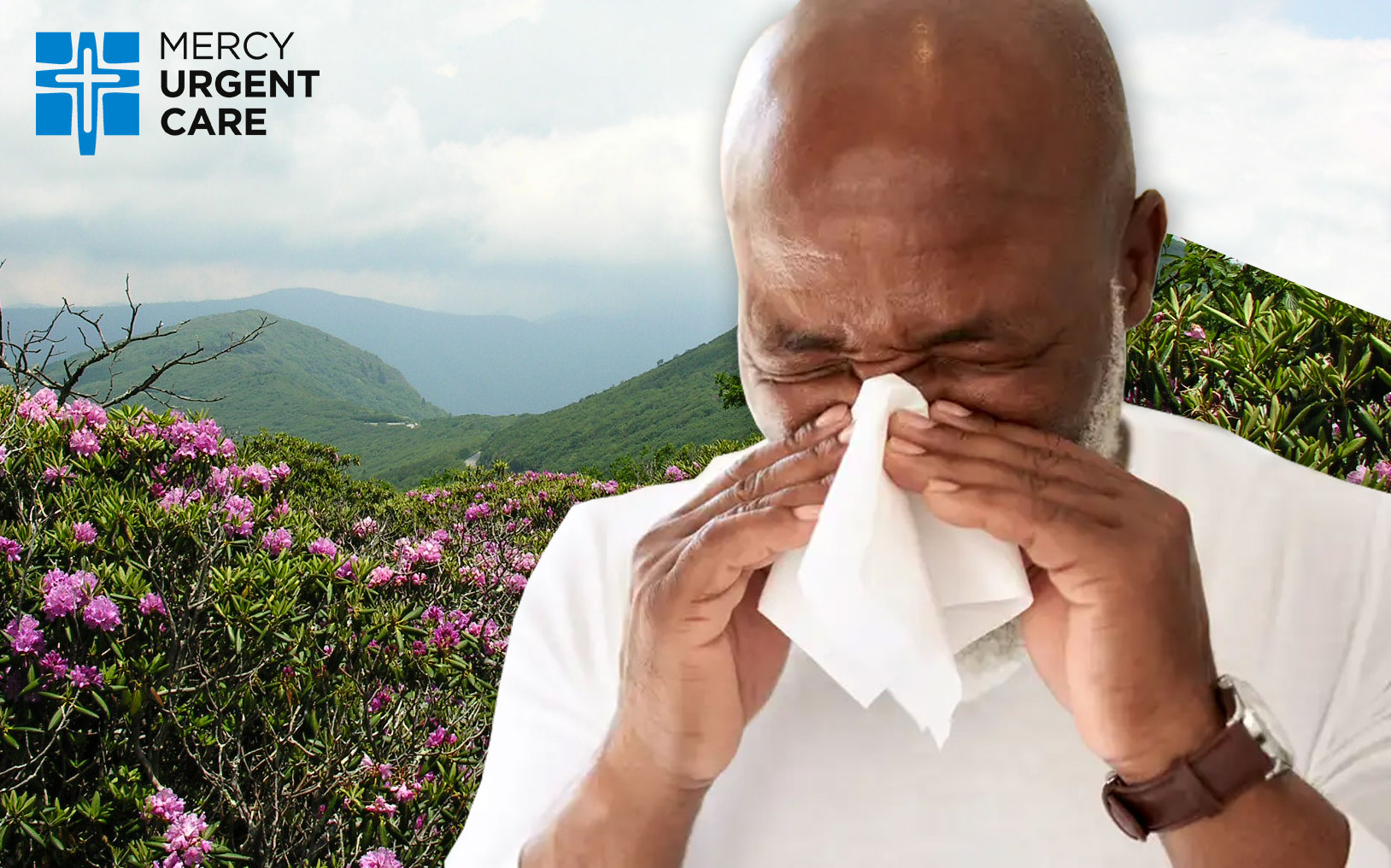Don’t let allergies ruin your spring

April 10, 2024 by Keely Knopp
Achoo! It’s that time of year: Hiking trails around Western North Carolina are popping with vibrant spring color, but for many, allergies may be dampening the experience — both on and off the trail.
To see the best that spring has to offer, consider a trip to Craggy Gardens, Roan Mountain, Pink Beds or Graveyard Fields, four trails known for their beautifully abundant floral displays, roughly beginning in April.
But whether you’re enjoying the blooms at Biltmore, the Asheville Botanical Gardens or along the Blue Ridge Parkway, you may want to take some extra precautions to avoid symptoms like sneezing, coughing, congestion, and an itchy, stuffy or runny nose, eyes and throat.
Ways to reduce your allergen exposure
According to Mayo Clinic, those prone to bothersome or severe allergies should consider taking steps to reduce their exposure to allergens. Before planning a day outside, check your local pollen count through helpful online resources, such as Pollen.com, which can predict when allergy triggers are at their highest. When levels are at their highest:
- Start taking allergy medications before your symptoms start. Many over-the-counter remedies like nasal sprays, oral antihistamines and decongestants can help alleviate symptoms before, during and after exposure.
- Stay indoors — especially on dry, windy days. Plan a hike or tend to your garden on days following a good rain, as moisture helps clear pollen from the air.
- Avoid lawn mowing, weed pulling and other gardening tasks that stir up allergens.
- After spending time outdoors, remove the clothes you were wearing and shower to rinse pollen from your skin and hair.
- Don’t hang clothes, bedsheets or towels outdoors to dry, as pollen is likely to stick to damp materials.
- Still have a spare mask or two from the pandemic’s peak? Wear it while performing outdoor chores to reduce your exposure to pollen.
- If allergies are bothering you inside your home, consider using an air purifier (with a HEPA filter) in your bedroom at night, and clean your floors frequently with a HEPA filter vacuum.
If symptoms persist despite taking these precautions, schedule a visit with your physician — or stop by your closest Mercy Urgent Care location — to see what additional treatments may be available to you.

